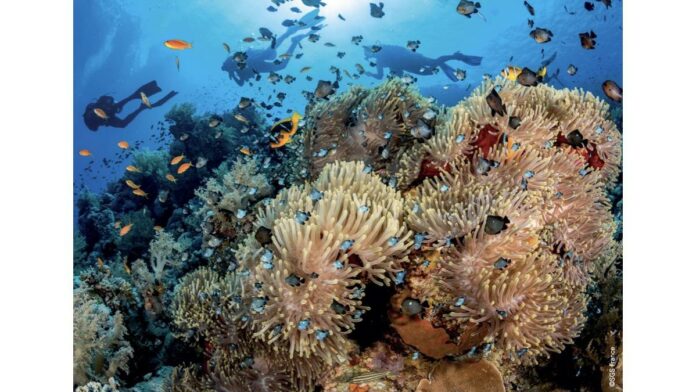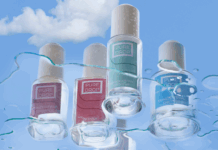SGS, the world leader in cosmetics testing, inspection and certification, has teamed up with the Ephyla laboratory, via its EcoSeaStems initiative, to develop a complementary ecotoxicology test on corals.
The "ReefTox" test aims to assess the toxicological impact of a cosmetic ingredient or product on a population of corals representative of tropical/indopacific bathing areas (known as the "coral triangle"). Contrary to what already exists on the market, this new test developed by Vincent Bourgeteau, biologist at EcoSeaStems, evaluates the toxicity of products on 50 species/specimens of hard and soft corals (ReefTox50) to obtain a true representation of the coral population. A version on 12 corals (ReefTox12) is also proposed in case of doubt about the product or formula, to avoid the risk of damaging too many cuttings.
"Over the past 1 year, our customers' requests for tests have increasingly focused on the ecotoxicity and biodegradability of their products, enabling them to verify the effect of an ingredient or finished product on the environment. Testing the impact of sunscreen products on corals enables us to support our customers in their quest for naturalness. This new partnership is in line with our approach, initiated more than 20 years ago, of carrying out ecotoxicology (and biodegradability) tests on raw materials and cosmetic formulas in seawater and freshwater".says François Richeux, COO Cosmetics and Hygiene at SGS Group.
"We're proud to have succeeded in developing this test, the first of its kind in France. We began working on the subject in 2020, at the start of containment. Worldwide, a large number of cosmetics laboratories have banned chemical UV filters and switched to mineral filters. ReefTox is the ideal solution for measuring the impact of these reformulations on coral environments.says Vincent Bourgeteau.
Corals, essential to the ecosystem
Corals, which come together to form coral reefs, are home to 25 % of our planet's marine life - nearly two million different species living in, on and around the world's reefs. Some 500 million people live off corals. Yet it is estimated that around a quarter of the world's coral reefs have already suffered irreversible damage, and two-thirds are seriously threatened. The cause: human activities that are gradually degrading marine habitats.
The foundations of an unprecedented test
To assess the short- and medium-term impact of a cosmetic ingredient on 50 species of coral, the corals are placed in a seawater aquarium whose physico-chemical parameters (temperature, pH, oxidation-reduction, salinity) are controlled to meet coral culture requirements. After an adaptation period (two hours), the sample to be tested is dosed and then placed in contact with the corals for approximately 24 hours. During this period, regular monitoring of water physicochemical parameters, general condition and coral survival is carried out by and under the supervision of a coral aquaculture specialist. At the end of the contact period, the corals are transferred to quarantine aquariums, containing standardized seawater, for a period of two weeks. During this quarantine period, the general condition and survival of the corals, as well as physico-chemical parameters, are regularly monitored by a coral aquaculture specialist. Evaluation of the survival and general condition of the corals, as well as the various physico-chemical parameters during the contact and quarantine periods, enables short- and medium-term assessment of the impact of the products to be tested.
SGS, a global offer for the world of cosmetics in search of naturalness
With globally recognized expertise in cosmetics testing, auditing and certification, SGS France carries out over 15,000 tests every year and works with over 800 customers to offer a wide range of services to help brands verify the safety, quality and performance of their products, and support them in their green transition process. This involves verifying that cosmetics and personal care products comply with the requirements of applicable regulations and other relevant regulations on cosmetics, aerosols and hazardous substances. SGS experts can also verify the compliance of products and manufacturing processes with various social and environmental standards. At the same time, in the context of the circular economy, SGS teams are in great demand when it comes to bulk, reusable packaging (recycled or not) for technical, dosage and regulatory issues.








